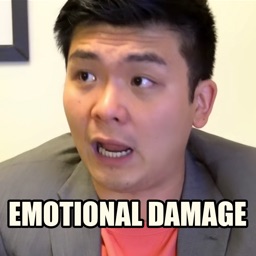The three functions of the nervous system.
What are collects info, processes info, and responds?
This is what the CNS mainly does.
What is processing information?
The two first parts to the PNS.
This is what the occipital lobe controls.
What is vision?
This is what happens when there is a lack of blood flow.
What is stroke?
The three parts to the neuron.
These two systems branch off of the motor part.
What are Sympathetic and Parasympathetic?
This is what the temporal lobe controls.
What is hearing and smell?
Name four addictive drugs
Cocaine, Weed, Meth, Alcohol
This is how nerves send an impulse.
What is electricity?
This system is also called the limbic system.
What is the emotional system. 
The sympathetic system is most commonly called this________
What is fight or flight?
This is what the parietal lobe controls. (Name three)
What is reading, speech, pain, touch, pressure, and temp?
List differences between the sympathetic and parasympathetic nervous systems.
Symp:
Pupils, lungs, muscles- Dilate
HR+BP, sweat-increase
Digestive, Kidneys-decrease
Opposite for Para
This is what it is called when you have a high sensitivity.
What is a low threshold?
This neuron the CNS sends up to the brain.
What are sensory nuerons?
The PNS deals mainly with both of this kinds of muscles.
What are voluntary and involuntary muscles?
This is what the frontal lobe controls. (Name three)
What is planning, movement, judgement, taste, consequences, and voluntary movement?
Describe the parts and functions of the peripheral and central nervous systems.
PNS
Structures: sensory neurons, motor neurons, muscles, glands
Functions: collect info, react to info
CNS
Structures: Spinal cord, Brain, Inner Neurons
Functions: process info (sends response, gathers info)
What are Muscles, Glands, and Nuerons?
This is what goes on in the brain when not fully committed to memory.
What is gray matter?
This enzyme works during your Parasympathetic time.
What is ACH?
Name all five receptors and what they respond to.
Chemoreceptor: chemicals
Photoreceptor: light
Mechanical receptor: touch
Thermo receptor: temperature
Pain receptor: tissue damage
Describe the nerve impulse from resting state to reset.
Rest: high Na+ outside/high K+ Inside axon
Impulse: Na+ gates open allowing Na+ inside
K+ gates open allowing K+ outside
Reset: K+ and Na+ reset into position